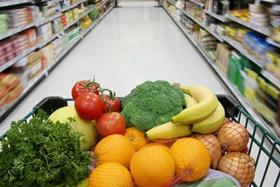
Taxing sugary soft drinks could be used to lower the price of fruit and vegetables as part of a wider drive to reduce obesity, a new report has said.
Less expensive produce would help people eat more healthily, the study suggests, while a 20p sugar tax on unhealthy soft drinks could also kickstart a long-term goal of taxing a wide range of products that fuel obesity.
The study, entitled Food for Thought, was published by the British Medical Association (BMA).
Researchers said that the majority of the UK population does not consume enough fruit and vegetables. “Consideration should therefore be given to the introduction of fiscal measures to subsidise the sale of fruit and vegetables in the UK, which could be funded by the introduction of a tax on sugar-sweetened beverages,” it said.
Despite the study’s findings, a spokesperson for the Department of Health told FPJ the government is “not considering a sugar tax”.
'Tackling obesity is of great concern to this government, and we have already committed to producing a childhood obesity strategy. There is no silver bullet but we do want to see industry go further to cut the amount of sugar in food and drinks so that people can make healthier choices,” the spokesperson said.
The news comes as speakers at the EGEA conference last month claimed that reducing the price of fruit and vegetables is not the solution to increasing intake.
However, the BMA study cited figures from the 2007 LIDNS (Low Income Diet and Nutrition Survey) that showed low-income households consume more processed meats, pizza, and soft drinks, and have less healthy dietary patterns.
Also speaking at EGEA, held in Milan, US food policy academic Kelly Brownell suggested that fruit and vegetable marketers could seek to partner with sugar tax lobbyists to make the most of any diverted revenue. “If fruit and veg are ever to compete with dairy, beef and other large sectors it’s going to be important to co-ordinate rather than splinter,” he said. “It can be a very powerful partnership between people who care about public health but from different points of view.”
The BMA said academic research suggests that healthiest diets cost double the price of unhealthy ones, and while the price of unhealthy foods has been shown to be decreasing over time, the gap between the price of healthy and unhealthy foods is widening.



